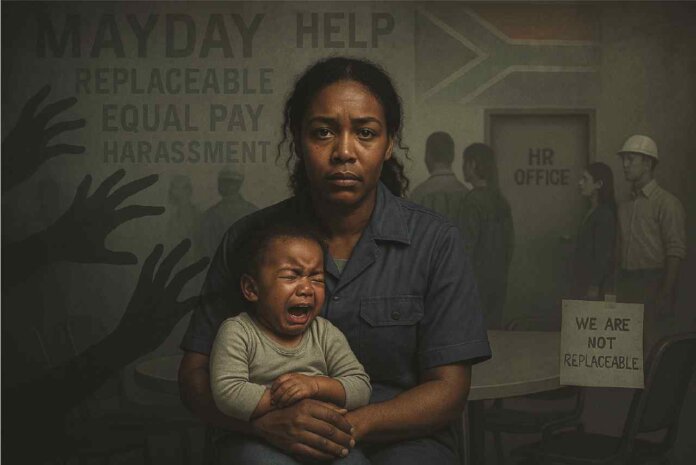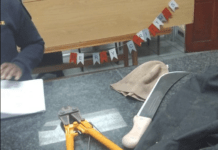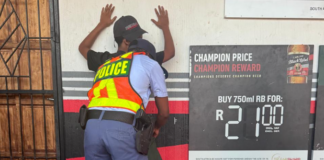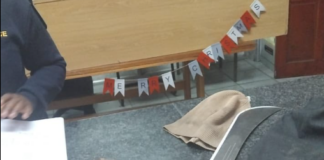I spent last night with 12 dynamic and enlightened young women. I had the immense privilege of speaking with them about gender equality and the persistent scourge of gender-based violence (GBV). The session was scheduled for an hour. As a facilitator, I braced myself for the usual coaxing. I was prepared to pull teeth to get the conversation going. But I couldn’t have been more wrong. They could not stop talking.
They were articulate, informed, and deeply engaged. The chat buzzed with questions, confessions, and fire-in-the-belly frustration. Five hours later, we were still talking. No one wanted to log off, even though it was a workday the next morning. Long after the call ended, I was flooded with private messages—stories that hadn’t been shared aloud. The kind that breaks you in half.
One message hit me hardest. A woman told me about the constant sexual harassment she faces at work. The fear she feels every time she walks into her workplace. The management dismisses her complaints. The unsolicited touch or brush as he passes her. He purposefully presses up against her in the coffee break room. The awful, sexually toned text sent to her private number then set for delete after viewing. No one will listen at work. She needs this job. She knows I can help her, but she is so afraid of the repercussions of speaking out.
Another young woman, a single mother, spoke about bringing her teenage daughter to work of late. The teen is too terrified to stay at home with the relative who is emotionally and verbally abusing her. This abuse has caused her such panic and fear, she doesn’t sleep and is too afraid to be anywhere without her mother. This has caused such a strain on both their lives. She now attends online school from her mother’s car. Her Mom can’t risk a breakdown or panic attack from her daughter, so they stay together. But this has made her a target. She’s being reported by co-workers. Her boss has threatened to involve Child Welfare. She can’t lose her job, and she also can’t afford to move or live on her own. She needs the financial help that the relative brings. I asked her if she’d explored the Employee Assistance Policy. Her answer left me gutted: “The same HR manager that’s supposed to help me is the one victimising me.” The CEO’s words? “You’re lucky to have a job. Don’t push it.”
We are over 100 years into the global recognition of May Day, and 30 years into Workers’ Day being commemorated as a national holiday in democratic South Africa. Yet women are still being harassed, silenced, and penalised for being mothers.
What has changed?
When I worked as an HR Manager at a sewing factory, handling labour, health and safety, and training, I would often come home in tears. I was powerless against an executive board that rejected every proposal for worker well-being. Money and production over wellness. When I discovered that workers were unknowingly signing termination forms during recruitment, I was livid. Women desperate for jobs would sign whatever was put in front of them. Too elated to have employment. Later, those forms were used against them in disciplinary hearings, as they had already signed their termination or dismissal forms. Either way, all that was needed was for me to put in their names and the date of their dismissal. Powerless to fight the power they only knew about but never saw. A blind control that took advantage of the power of being hired. So the motto was hire to fire. There was always someone ready and waiting to replace you. When I raised it with leadership, I was pulled aside and shown the gate. A senior manager told me, “See all those people? They’re ready to work. Everyone is replaceable.” Everyone is replaceable. That’s the lie too many employers believe. It’s the lie that leads to exploitation, especially of poor, Black, Coloured, Indian and White female workers in South Africa.
It’s the same lie that made women collapse from untreated chronic illnesses on factory floors. They’d wait outside my office, hoping I’d send them to the clinic without pay deductions. The line managers were skipping lunch and tea breaks to make quotas, and their workers paid the price with their health. I managed to implement small changes, like arranging for the hospital to deliver chronic medications on-site. But I didn’t last long. I couldn’t live with myself working with the knowledge of what was happening behind those gates. I could not be part of a system that continuously sets people up for failure, all of them just numbers pf profit and loss on a spreadsheet.
Just like it was on a construction site I visited to facilitate a training session in Occupational Health & Safety. I walked around the construction site to do a site inspection and risk assessment. I wanted real case studies to refer to in my training. I found women skimming ceilings while standing on planks balanced on paint drums. In skirts and dress. With men working below. Their IDs had been confiscated. They begged me not to say anything. “He’ll replace us by tomorrow,” they said. “He has other women outside.” His tender instruction was that he showed and had an equity quota on his site, yet his work site was a horror show, which should not have even passed the first round of the tender process.
In 2025, are we truly free from the chains that bound our labour force in the past?
The Burden of Representation – South Africa’s employment system is further complicated by race, Broad-Based Black Economic Empowerment (B-BBEE), and affirmative action policies. While the intentions behind these initiatives were noble and were necessary to correct decades of economic exclusion, they’ve sometimes been misapplied, manipulated, or merely used to secure contracts. In some workplaces, B-BBEE is a box-ticking exercise. Black staff are hired or promoted without real authority, training or support, becoming figureheads to protect white-owned interests, or so its believed to be. Others are pitted against each other in environments of distrust, where Coloured, Indian and White colleagues are made to feel like they’re competing for scraps. This deepens racial tension instead of dismantling it. Equality means equal. But there is nothing equal about South Africa’s empowerment policies in action.
One young coloured man told me: “I’m not Black enough for B-BBEE, not White enough for corporate. So where does that leave me?” A fair question in a country still healing from systemic segregation. There is no place for me because I belong to a racial group that has been silenced and pushed aside, as if we don’t exist, in this black and white race issue in South Africa. The young white man with no faith in his country is not considered for employment because he is held accountable for the past atrocities of his racial group that hold him in chains now. Even though he had absolutely nothing to do with those actions. He is unemployable now, just because he was born white. Not even up for consideration because his people have had the luxury of wealth many many years ago, so he is held with the misconception that he has that wealth. Even though his family lives in a trailer park, in a tent yard also begging at the robots for their livelihood. It leaves many South African workers trapped, not forgetting the women of any colour who carry not only the burden of their race but of gender and motherhood too.
Let’s talk about the invisible cost of being a Woman at Work and what it means to be a mother in the workplace. You’re expected to perform like you don’t have children and parent like you don’t have a job. You leave early to collect your child, and you’re called “unreliable.” You work from home to care for a sick toddler and get told “you’re not committed.” You ask for flexibility and get sidelined for promotions. Your male colleagues don’t face the same scrutiny. Then there’s the gender pay gap, still very real in South Africa. For every rand a man earns, women earn significantly less. And if you’re a woman of colour? Even less. Research by the Commission for Gender Equality shows that in many sectors, women are still paid up to 35% less than men in the same roles. Many organisations refuse to audit salaries or publish pay transparency data.
Then there is the Unspoken Epidemic. Sexual harassment is still largely invisible in many industries. Women whisper it to each other in bathrooms, over lunch, in encrypted text messages, but rarely in boardrooms. Reporting it often means career suicide. Especially if your harasser is a senior manager or someone “respected” in the company. A young intern once told me, “I smile and pretend I’m okay because I need this internship to get a permanent post. If I speak up, I lose everything.” This is the lived experience of thousands of women. And the systems meant to protect them, HR departments, unions, legal frameworks, often fall devastatingly short.
So… What Are We Really Celebrating? May Day now Workers’ Day is more than a day off. It is a moment of reflection. Are we upholding the values that trade unions fought for? Are workers being protected, paid fairly, and treated with dignity? Do our HR departments champion humans, or are they there to defend company profits? Have we reduced human resources to just “resources”? Do we believe that every person matters? Or are we still living by the mantra that “everyone is replaceable”?
We need a new culture of labour justice—one that values relationships, wellness, safety, and accountability over optics and profit. One that recognises that economic justice is racial justice, is gender justice, is social justice.
In Honour of Our Unsung Heroes. On this Workers’ Day, let us pay tribute to the essential workers who never stop. The doctors, nurses, cashiers, refuse & sanitation workers, mine-workers, domestic workers, security guards, petrol attendant, farmers, factory operators, retail workers and the many who hold this country together behind the scenes. The ones who work through holidays so others can rest. While we enjoy a long weekend shopping, relaxing, and socialising, someone is stocking the shelves, preparing your meal, watching the cameras, or working underground to prevent disaster. While we eat and laugh, someone is working silently behind the scenes, often underpaid and unappreciated.
We honour the mothers who bring their daughters to work to keep them safe. The women who endure harassment because they need to feed their families. The youth who endure unpaid internships with the promise of “exposure.” The coloured man caught between policies that don’t acknowledge his struggle. The worker who collapses on the floor just to get a sick day without punishment.
We honour you.
May Day. May Day.
We hear the distress call.
It’s time to answer.
Tessa Green
RELATIONSHIP & BEHAVIOURAL PRACTIONER, FACILITATOR AND COACH








